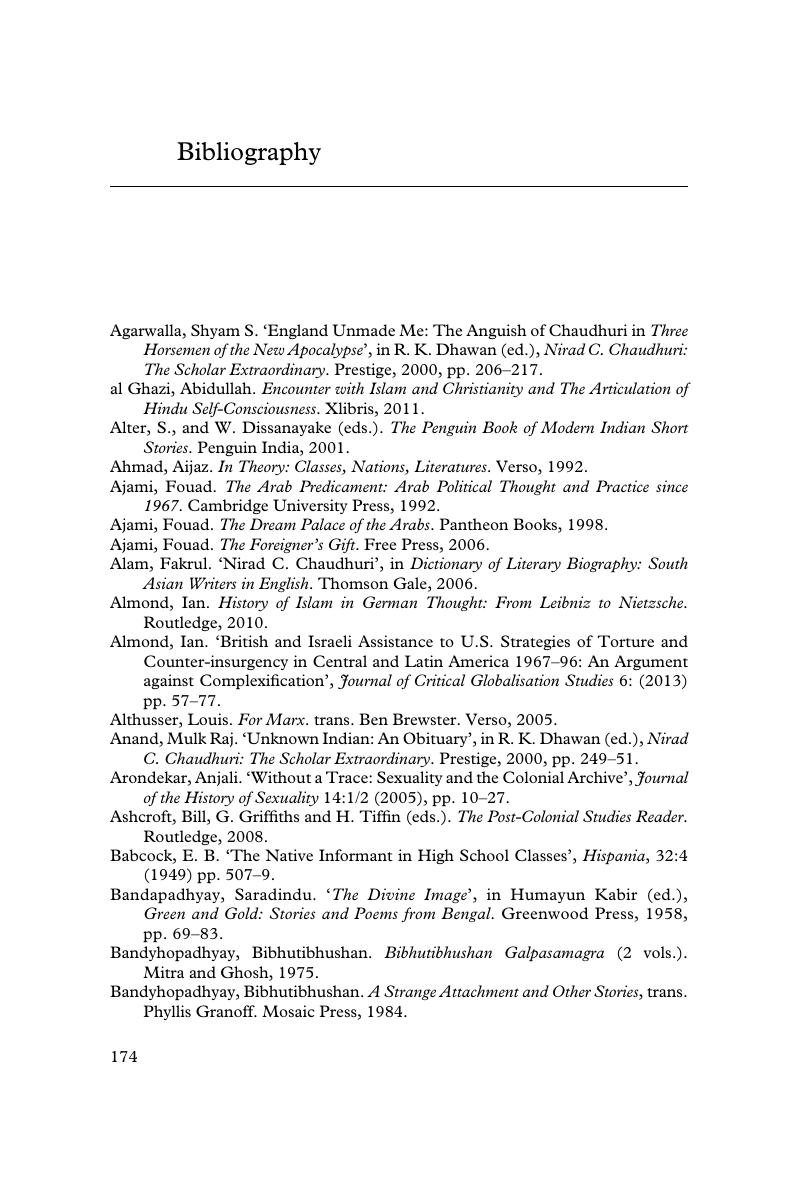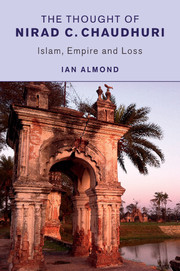Book contents
Bibliography
Published online by Cambridge University Press: 05 September 2015
Summary

- Type
- Chapter
- Information
- The Thought of Nirad C. ChaudhuriIslam, Empire and Loss, pp. 174 - 181Publisher: Cambridge University PressPrint publication year: 2015



